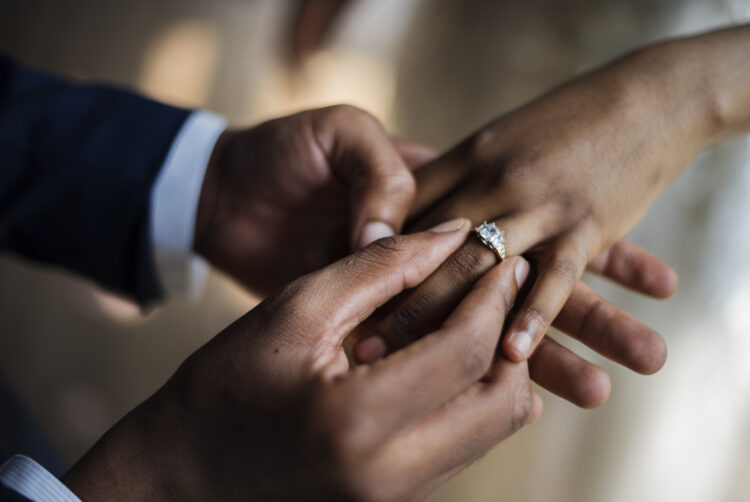
Marriage, once considered the cornerstone of stability and commitment, is scrutinized in contemporary society. While the institution still holds significance for many, a lot of people are questioning its relevance in today’s world. Here are detailed reasons why getting married might not be worth it anymore, except in extraordinary circumstances.
Financial Burden

We all have seen how wedding nuptials have become extravagant affairs, which often strains couples financially. The cost of hosting a grand reception, other ceremonies, and associated expenses can lead to significant debt, impacting the early years of matrimony.
Increased Divorce Rates

Divorce is emotionally draining and also legally intricate, and financially burdensome. From dividing assets to determining custody arrangements, the legal process can drag on for months or even years, exacerbating the emotional toll.
Declining Benefits For Married Couples

The erosion of benefits traditionally associated with matrimony is a compelling reason for people to reconsider tying the knot. Once, it offered practical advantages like tax breaks, healthcare coverage, and social security benefits exclusively to spouses. However, societal shifts and legislative changes have chipped away at these benefits, making them more accessible to unmarried individuals through alternative legal arrangements like domestic partnerships or cohabitation agreements.
Lack Of Personal Freedom

The emphasis on personal growth and self-fulfillment has led many to prioritize their happiness over conforming to societal expectations of a civil union. People now seek partnerships that allow for personal growth and exploration without the constraints of traditional wedlock.
Gender Dynamics

Historically, civil unions often perpetuated traditional gender roles, with women expected to fulfill domestic duties while men assumed breadwinning responsibilities. However, societal progress and evolving attitudes have challenged these norms, leading to a shift towards more egalitarian partnerships. Yet, despite these advancements, some individuals may hesitate to marry due to lingering gender expectations or concerns about perpetuating outdated norms within the institution.
Availability Of Other Alternatives

Non-traditional structures, such as open relationships, offer alternatives to the monogamous institution of marriage. As society has evolved, individuals increasingly explore diverse forms of partnership that align with their values and desires.
Changing Social Perceptions

Changing social perceptions surrounding becoming husband and wife is a significant reason for many to reconsider its relevance in contemporary times. Once viewed as the ultimate marker of success and stability, getting hitched now faces increased scrutiny and evolving attitudes. Divorce rates are high, and the stigma surrounding singlehood and divorce has diminished. This shift allows one to pursue alternative paths to happiness and fulfillment without societal judgment.
Impact on Emotional And Mental Health

Remaining in an unfulfilling and unhappy matrimony can have profound emotional consequences, leading to feelings of resentment, depression, and anxiety. The pressure to conform to cultural norms of marriage can exacerbate these negative emotions. Research suggests that marital dissatisfaction is linked to declining mental health, increased stress, and decreased overall well-being.
Reconceptualizing Commitment

Traditionally, marriage has been synonymous with commitment, symbolizing a lifelong bond between partners. However, with the evolving relationship dynamics, commitment no longer requires a legal contract; many express dedication and loyalty through various means, such as cohabitation, long-term partnerships, or even solo pursuits.
Career And Personal Aspirations

Millennials and younger generations often prioritize their careers, personal development, and individual goals over traditional markers of success like wedlock. Pursuing personal passions and aspirations takes precedence over settling down.
Cultural Variations

Attitudes toward marriage vary significantly across cultures and demographics, with some societies placing less emphasis on the institution altogether. Cultural notions and values shape one’s perceptions and decisions regarding marriage.
Women Are Doing Fine As Single Mothers

Most women don’t typically express a desire to embark on motherhood solo. However, if they harbor a strong biological drive to become parents yet haven’t encountered the ideal partner or are unimpressed by the dynamics of their friends’ relationships, they may pursue single parenthood. Nowadays, there’s reduced stigma surrounding the utilization of sperm donors or embracing single motherhood.
Requires Too Much Investment

People have been assessing emotional and financial investments alongside the anticipated returns. Civil unions entail compromises and limitations on personal freedom. Finances may also suffer as income merges into a shared pool, relinquishing one’s control over spending. Ultimately, individuals gauge whether the benefits outweigh the costs.
Lacking Enough Married Role Models

We’re witnessing a new trend where more individuals opt out of marriage, especially among the younger generation. Many of them come from backgrounds where their parents chose not to marry. Additionally, the media’s portrayal has shifted away from spotlighting betrothed couples, reducing the availability of marital role models.
Overly Dependent On The Other Spouse

While partnership often entails mutual support and reliance, excessive dependency on one’s spouse can lead to imbalance. Relying too heavily on your better half can diminish one’s sense of independence and self-reliance. Moreover, if the relationship falters or ends, the dependent partner may be ill-equipped to handle life independently.
